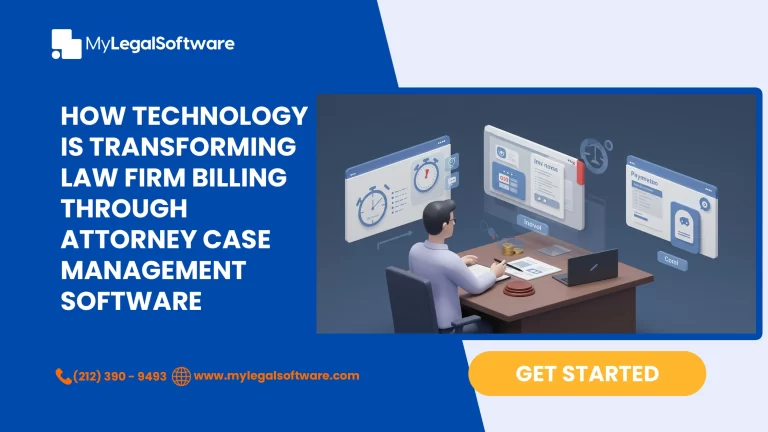Feeling swamped with paperwork and legal stuff? Legal workflow automation can make your law firm’s procedures easier and enhance productivity. Implement it right and you can take your law firm to the next level. Find out how to quickly and easily get going with legal workflow automation.
What is legal workflow automation?
Legal automation is the use of technology and software to improve legal workflow in law firms or departments. Automating tasks like drafting and managing documents, as well as document automation and centralized document management platforms, can help law firms save time and increase efficiency.
Examples of legal automation include contract automation, automated data breach reporting, digital intake and triage, and automated routine tasks. Automation solutions benefit firms by providing better client experiences, attracting new business, and reducing non-billable tasks.
Forbes Magazine reported that legal automation can lead to greater ROI, employee satisfaction, and client experiences. Software to streamline processes on a web-based or cloud-based platform can uncover valuable opportunities. Legal automation reduces tedious tasks, minimizes errors, and allows easy generation of contracts. It also boosts morale by increasing job satisfaction.
Why go through all that paperwork when you can automate your law firm’s workflow and have more time for crime dramas?
Why you should automate your legal workflows
Legal workflow automation is vital for law firms. It can save time and reduce errors. Here are some key benefits:
- Automate repetitive tasks like document creation and admin duties.
- Create custom workflows to fit your firm’s needs.
- Centralize all legal processes within a web-based platform.
- Free up time for attorneys for more strategic tasks.
- Generate data-driven insights from automated reports.
- Reduce the risk of human errors with document automation tools.
- Boost employee satisfaction and client experiences.
- Choose an automation solution that aligns with your firm’s goals.
The use of legal workflow automation can result in a return on investment (ROI) of up to 30%. Implement it for better client services, accurate legal guidance, and minimal human errors. Plus, you’ll have more time and money. What’s not to love?
The benefits of automating your law firm’s workflow
Legal workflow automation can bring big advantages. Let’s look at 5 key ones:
- Smoothen and automate routine and admin tasks.
- Save time on legal processes.
- Securely manage legal documents.
- Create custom automated workflows inside the legal department.
- Provide senior legal professionals with smart insights.
Plus, automation can help reduce errors, lift employee morale, and boost client experiences. It also frees up attorneys’ time, allowing them to focus on more strategic activities like planning for new business opportunities.
The stats don’t lie: LegalTech News found that law firms that use automation tech see a 30% increase in efficiency.
Automating legal workflows: A perfect way to make lawyers even more efficient!
5 Steps to legal Workflow automation
Want to automate your legal workflows and streamline processes? Here’s how:
- Create a plan. Evaluate current processes and spot tasks that could benefit from automation software.
- Choose the right tool. Opt for a web-based platform to securely manage documents and integrate with other systems.
- Identify candidates for automation. Think contract automation or document creation.
- Implement best practices. Stick to industry standards and guidelines for a better client experience.
- Measure ROI and optimize. Track time saved and errors, then make adjustments.
These workflow automation tools will bring your law firm lots of benefits – higher efficiency, time saved, better employee satisfaction, fewer errors, and more strategic tasks. Don’t miss out – start planning today!
The best legal workflow automation software for law firms
Workflow automation tools are becoming essential in law firms to streamline processes, increase efficiency, and reduce errors.
One of the top options available is Clio, a cloud-based platform specifically designed for legal professionals. Clio helps automate document management, time tracking, and client communication, allowing lawyers to focus more on actual legal work.
Another popular tool is NetDocuments, which offers advanced document management features, including version control and collaboration options. NetDocuments also integrates with other important software commonly used in law firms, such as Microsoft Office and email clients.
For firms that require a more comprehensive solution, PracticePanther is a robust choice. It offers automation capabilities for various aspects of a law firm’s operations, from client intake and billing to scheduling and task management. PracticePanther also provides a user-friendly interface and powerful reporting and analytics features.
Lastly, Zapier is a versatile automation tool that can connect different applications and automate repetitive tasks. Law firms can use Zapier to create workflows that link case management software with contract management tools, for example. With its wide range of integrations, Zapier allows law firms to customize and automate their workflows according to their specific needs. In conclusion, leveraging workflow automation tools in law firms not only saves time and money but also improves overall productivity and ensures smoother operations.
Legal workflow automation software is the key to automating law firm processes. This tool streamlines tedious administrative tasks, like document creation and management.
How to automate your legal workflow
Automating your law firm’s workflow can be a challenge. But it can also be worth it! It can lead to increased efficiency and save time on repetitive tasks. Here are the steps to help you get started:
- Identify repetitive tasks. Look for things like drafting documents, managing calendars, and processing invoices.
- Choose the right automation tool. Find something that suits your firm’s needs. Consider features like document automation, data centralization, and secure document management. All these features you will find in Mylegalsoftware
- Create custom workflows. Match them to your firm’s processes. This will help automate tasks and ensure consistency.
- Plan for change management. Communicate the benefits of automation and give training to ensure smooth adoption.
- Continuously improve and refine. Evaluate effectiveness and look for new opportunities for automation. This will maximize efficiency.
Automating your law firm’s workflow can bring great value. It can free up time, reduce human errors, and boost employee morale. A great example of this is a corporate legal team that implemented a cloud-based document creation system. This resulted in increased ROI, faster contracts, and improved client experiences & employee satisfaction.
The challenges of automating your legal workflow
Automating your law firm’s workflow can be tough. Complex, nuanced processes make it daunting. But, legal workflow automation software can help. Streamline repetitive tasks and save time. Centralize and manage documents securely. Automate routine tasks to add value. Choose the right software, create a plan, and effectively manage change. Incorporate automated breach reporting, digital intake, and task allocation. Uncover opportunities while reducing errors and boosting morale. Enhance client experience with accurate, efficient contracts. Goodbye billable hours, hello robots!
The future of workflow automation for law firms
The future of legal workflow automation is in software. It streamlines and automates repetitive tasks. This frees up legal professionals to focus on more strategic and valuable activities.
Document automation centralizes and securely manages legal documents. Custom workflows help law firms increase efficiency and provide a better client experience.
Contract automation, digital intake and triage, and automated data breach reporting are legal workflows that benefit from automation.
A legal automation tool can help law firms save time, reduce errors and boost employee morale.
A 2020 study by Law.com found that law firms who adopted the technology reported increased efficiency. This improved job satisfaction for their legal teams. Automation is valuable for the legal profession.
Frequently Asked Questions
FAQs for Legal Workflow Automation for Law Firms: How to Get Started
1. What is legal workflow automation?
Legal workflow automation refers to the use of technology and software solutions to streamline and automate various processes and tasks within a law firm. This can include tasks such as document management, case management, contract creation, and client communication.
2. Why should a law firm consider implementing workflow automation?
Workflow automation can greatly improve efficiency and productivity within a law firm. By automating repetitive and time-consuming tasks, lawyers and staff members can focus more on providing quality legal services to clients. It also helps in reducing errors and improving overall accuracy.
3. How can a law firm get started with legal workflow automation?
The first step is to evaluate the specific needs and pain points of the law firm. Identify the tasks and processes that are most suitable for automation. Then, research and choose a workflow automation software or platform that aligns with the firm’s requirements. Finally, develop a plan to train staff members and implement the automation processes gradually.
4. What are the potential challenges in implementing workflow automation?
One common challenge is resistance to change from staff members who may be accustomed to traditional methods. It is crucial to involve and educate employees about the benefits of automation to gain their full support. Additionally, integrating automation solutions with existing software systems and ensuring data security can also be challenges that need to be addressed.
5. Are there any ethical considerations when using workflow automation in the legal industry?
Yes, there are ethical considerations to keep in mind. While automation can streamline tasks, it shouldn’t replace the professional judgment and expertise of lawyers. It is essential to ensure that automation is used to enhance legal services and not compromise ethical standards, such as confidentiality and attorney-client privilege.
6. Can workflow automation be customized to suit a law firm’s specific requirements?
Yes, most workflow automation solutions offer customization options. Law firms can tailor the software to match their unique processes, templates, and workflows. This allows firms to maintain their individuality and cater to specific practice areas or client needs.









